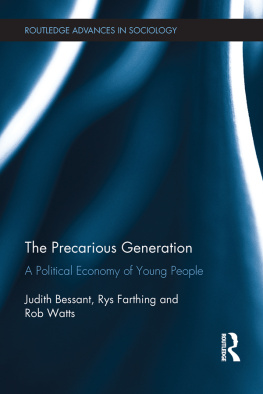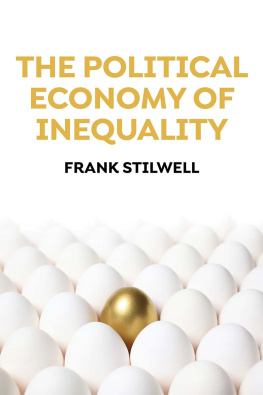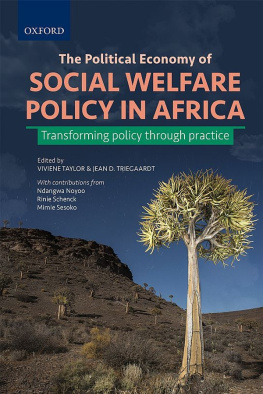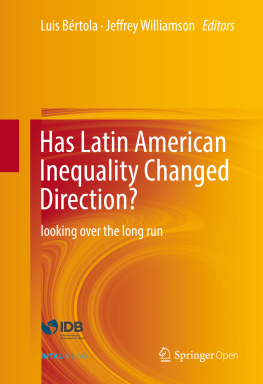
The Precarious Generation
This book draws on a wealth of evidence, including young peoples own stories,to document how they are now faring in increasingly unequal societies likeAmerica, Britain, Australia, France and Spain. It points to systematic generationalinequality as those born since 1980 become the first generation to have alower standard of living than previous generations. While governments andexperts typically explain this by referring to globalization, new technologies, oryoung peoples deficits, the authors of this book offer a new political economyof generations, which identifies the central role played by governments promotingneoliberal policies that exacerbate existing social inequalities based on age,ethnicity, gender and class. The book is a must read for social science students,human service workers and policy-makers and indeed for anyone interested in understanding the impact of government policy over the last 40 years on young people.
Judith Bessant is a Professor in the School of Global, Urban and Social Studies at RMIT University, Australia.
Rys Farthing is a consultant based in London, UK.
Rob Watts is a Professor in the School of Global, Urban and Social Studies at RMIT University, Australia.
Routledge Advances in Sociology
Racial Cities
Governance and the Segregation
of Romani People in Urban
Europe
Giovanni Picker
Bourdieusian Prospects
Edited by Lisa Adkins,
Caragh Brosnan
and Steven Threadgold
Alienation and Affect
Warren D. TenHouten
Homeownership, Renting and
Society
Historical and Comparative Perspectives
Sebastian Kohl
Social Class and Transnational
Human Capital
How Middle and Upper Class
Parents Prepare Their Children
for Globalization
Jrgen Gerhards, Silke Hans
and Sren Carlson
Love and Society
Special Social Forms and the
Master Emotion
Swen Seebach
Transnational Social Policy
Social Welfare in a World on the
Move
Edited by Luann Good Gingrich
and Stefan Kngeter
Meta-Regulation in Practice
Beyond Morality and
Rationality
F.C. Simon
The Sociology of Postmarxism
Richard Howson
The Precarious Generation
A Political Economy of Young
People
Judith Bessant, Rys Farthing
and Rob Watts
Human Rights, Islam and the
Failure of Cosmopolitanism
June Edmunds
New Generation Political
Activism in Ukraine
2000-2014
Christine Emeran
The Construction of Identity in Turkey
State, Memory and Outsiderness
Ozlem Goner
The Precarious Generation
A Political Economy of Young People
Judith Bessant, Rys Farthing and Rob Watts

First published 2017
by Routledge
2 Park Square, Milton Park, Abingdon, Oxon OX14 4RN
and by Routledge
711 Third Avenue, New York, NY 10017
Routledge is an imprint of the Taylor & Francis Group, an informa business
2017 Judith Bessant, Rys Farthing and Rob Watts
The right of Judith Bessant, Rys Farthing and Rob Watts to be identified as authors of this work has been asserted by them in accordance with sections 77 and 78 of the Copyright, Designs and Patents Act 1988.
All rights reserved. No part of this book may be reprinted or reproduced or utilized in any form or by any electronic, mechanical, or other means, now known or hereafter invented, including photocopying and recording, or in any information storage or retrieval system, without permission in writing from the publishers.
Trademark notice: Product or corporate names may be trademarks or registered trademarks, and are used only for identification and explanation without intent to infringe.
British Library Cataloguing in Publication Data
A catalogue record for this book is available from the British Library
Library of Congress Cataloging in Publication Data
Names: Bessant, Judith, author. | Farthing, Rys, 1981 author. |
Watts, Rob, author.
Title: The precarious generation : a political economy of young people /
by Judith Bessant, Rys Farthing and Rob Watts.
Description: Abingdon, Oxon ; New York, NY : Routledge, 2017.
Identifiers: LCCN 2016053809| ISBN 9781138185470 (hardback) |
ISBN 9781315644493 (ebook)
Subjects: LCSH: YouthSocial conditions. | YouthEconomic conditions. |
YouthEmployment. | Equality.
Classification: LCC HQ796 .B429 2017 | DDC 305.235dc23
LC record available at https://lccn.loc.gov/2016053809
ISBN: 978-1-138-18547-0 (hbk)
ISBN: 978-1-315-64449-3 (ebk)
Typeset in Times New Roman
by Wearset Ltd, Boldon, Tyne and Wear
Contents
This book was conceived a couple of years ago. The three of us found ourselves in Paris talking about the ways many young people were not doing so well, a fact that we recognized as owing much to decisions made by neoliberal policy-makers and other power elites since the late 1970s. Each of us had also been thinking and writing about these issues for many years. We came to the conclusion that it was a good idea to write a book about it. We began scribbling away on various scraps of paper in cafs and gardens roughing out the draft for a book proposal.
To our delight, Gerhard Boomgaarden, commissioning editor for Routledge, liked the idea and gave us the go ahead in the form of a contract. We are most grateful.
Developing the proposal proved the easiest part of the project in our naivet and optimism, we thought it would be a straightforward project. As it turned out, writing this book has been one of the most intellectually challenging and difficult research projects we have done. Trying to document what governments have been doing since the late 1970s, over five countries, each with very different histories and cultures was to say the least a big job. This is to say nothing of the challenges involved in describing the various ways neoliberalism was expressed by governments and experienced by young people, before trying to make sense of it all in the context of ongoing debates in disciplines as various as sociology, youth studies, criminology and political science. Suffice it to say that it has been a project during which we have learnt much.
There are many people who have helped us along the way. First, our respective work places. Judith Bessant and Rob Watts thank the Royal Melbourne Institute of Technology University, which employs us, for support in researching and writing this book. We also thank our friends, colleagues and students at RMIT University.
Rys Farthing would like to thank Humaira, Harry and Anclaudys for their helpful insights.
It has been a demanding project carried out over three years without any research funding. We have also had help from many young people directly and indirectly; something we would like to acknowledge. Crucially, we thank our dear friend and colleague Alex Hudson, who kindly gave his precious time, energy and professional expertise when editing the book and letting us know ever so nicely when we were being excessive in the way only academics can be.
We also thank our families for their patience, love and support.
Finally, we thank the editorial staff at Routledge, especially Alyson Claffey, Alexis Taylor, Matt Deacon, and Amy Ekins-Coward, for their patience and expertise in seeing this book to publication.









